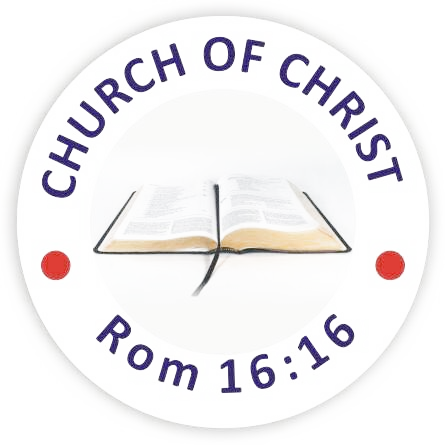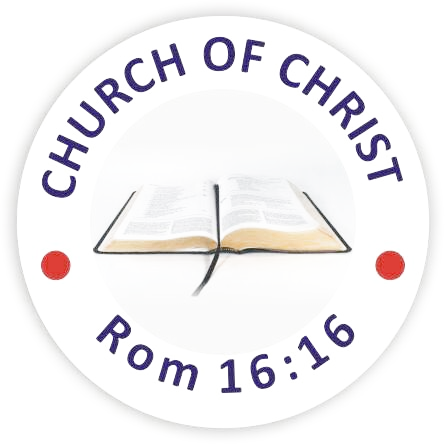BIBLICAL PRINCIPLES OF THE UNITY OF THE CHURCH
I. The Nature of the Church
- The church is the body of Christ, covenant people of God-the body of people to whom God has made the promise to be their God and they to be his people and he to dwell with them.
- All those who believe and have put on Christ through baptism (immersion) are to be recognized and treated as God's people, as members of the body, Church of Christ.
- Jesus Christ is the head of the Church and "there is no other head of the church but the Lord Jesus Christ".
II. The Unity of the Church
- The church finds its unifying principle in the promise "my dwelling place will be with them; I will be their God, and they will be my people" (Ezek. 37:27, Lev. 26:12). This finds fulfillment in Jesus as Emmanuel ("God with us," Matt. 1:23, Jn. 1:14), who came as the mediator of the covenant of grace to redeem and purchase this people for his dwelling by his blood. The ultimate consummation of the promise is the New Jerusalem, the Bride of Christ (Rev. 21:3).
- The church must recognize, appreciate, and confess this fundamental unity of the covenant people of God, the body of Christ; which is a God-given creation and not a human achievement.
- The church, the visible organization, is described in the Bible as one church. God has given only one covenant of love (Deut. 7:6-12) and has only one people of the covenant.
- In the New Testament this teaching of the unity of the people of God is sustained (see Eph. 2:11-22 and 4:1-16). Yet the situation is different. No longer are the people of God circumscribed by ethnic, political, or geographical boundaries. All nations are to be discipled.
- This unity includes those people of God in past ages and also looks to the future and includes the people of God who will believe on his name (Jn. 17:20-21).
- The gospel proclaimed by the apostles as the foundation of the church resulted in establishing churches in various locations. These Churches were not independent, but were one body united by Christ their head, by the abiding presence of the Holy Spirit, and by the covenant promise of God. The elders at Antioch and Jerusalem resolved a problem, under God, and their decision was binding on the churches (Acts 15, 16:4).
- The unity of the church is attained unto by growing in spiritual maturity (Eph. 4:13). Unity and maturity are the result of mutual, loving admonition and joint submission to Scripture. Such maturity is manifested by speaking and acting the truth in love (Eph. 4:15).
- Each member is essential to the body, and the growth of the body depends on the active participation of each part (Eph. 4:13, 16). The work of the leaders in the church is to prepare the members for, and assist them in this work (Eph.4:11-12).
Jesus' Prayer for Unity (Jn. 17:20, 21): It is a travesty of this text, as of all others bearing upon the unity of the church, to think of the unity for which Christ prayed apart from the unity in the bond of truth. Verse 21 must not be dissociated from verse 20. To divorce the unity for which Christ prayed from all that is involved in believing upon him through the apostolic witness is to sunder what Christ placed together. Furthermore, the pattern Jesus provides in this prayer-"as thou, Father, art in me and I in thee"-makes mockery of the application of the text when unity is divorced from the characterization which finds its analogy in trinitarian unity and harmony. But while these and other distortions of this text are to be shunned, the prayer of Jesus does bear upon our question in two respects.
1. The fragmentation and consequent lack of fellowship, harmony, and cooperation which appear among us are a patent contradiction of unity exemplified in that to which Jesus referred when he said, "as thou, father, art in me and I in thee."
2. The purpose stated in Jesus' prayer-"that the world may believe that thou hast sent me"-implies a manifestation observable by the world. Jesus prays for a visible unity that will bear witness to the world. The mysterious unity of believers with one another must come to visible expression so as to be instrumental in bringing conviction to the world.
III. The Unity of the Body of Christ: The church is the body of Christ and there is no schism in the body (cf. 1 Cor. 12:25). As in the human body, there is diversity in unity and unity in diversity (cf. 1 Cor. 12). The point to be stressed, however, is the unity. If there is unity it follows that this unity must express itself in all the functions which belong to the church. Since government in the church is an institution of Christ (cf. Rom. 12:8; 1 Cor. 12:28; 1 Tim. 5:17; Heb. 13:7, 1 Pet 5:1, 2), this unity must be expressed in government. The necessary inference to be drawn is that the government should manifest the unity and be as embracive in respect of its functioning as the unity of which it is an expression. A concrete illustration of this principle is the decree of the Jerusalem council (Acts 15:28, 29; 16:4). Paul tells us in Ephesians 4:1-3 that in order to walk worthy of our calling in Christ Jesus, members of the church body must work diligently to keep the spirit of peace which holds us together. Why? Why is the unity of the church such a major doctrinal concern for Paul? If it is "work," and especially if it is a work in need of "diligence," then there must be something larger at stake when unity in the church is failing. Why is unity important in the church body? Allow me to offer three biblical reasons from Ephesians 4.
1. Unity of the church body testifies to the unity of the God Head. "One Spirit... One Lord... One God and Father of all," (Eph. 4:4-6) Unity in the body of Christ should testify to the unity of God's eternal Three- In-Oneness. God is One. The Father, the Son, and the Spirit are unified in purpose and in essence, as should be mirrored in the church body.
When the body of Christ operates in disunity, it paints a false picture of God to the world. However, churches comprised of members who get past their introspectiveness and submit themselves to the vision and direction of the church body promote a more accurate picture of the God Head to the world they are called to reach with the gospel of Jesus Christ.
2. Unity of the church body testifies to the unity of the gospel message. "One hope... One faith... One baptism," (Eph. 4:4-6) Unity in the body of Christ should testify to the unity of the gospel message. There is not more than one hope for salvation. There is not more than one object of faith who can save. There is not more than one baptism which identifies a born-again believer as a follower of Christ.
When believers in the church body are divided, it communicates to the world that the message of salvation in Jesus Christ is subject to amendment and/or discontinuity. The unity of the church body must model the unity of the gospel. No wonder Jesus was so adamant when He prayed "May they all be one, as You, Father, are in Me and I am in You. May they also be one in Us, so the world may believe You sent me," (John 17:21). Our lack of unity as Christians affects the world's understanding of the testimony about Jesus Christ. Our lack of unity as Christians affects the world's understanding of the testimony about Jesus Christ.
3. Unity of the church body affects the church's ability to be productive for the kingdom of God. "There is one body," (Eph. 4:4) Imagine one head, but two bodies. Two bodies who disagree over the direction the head is revealing to go and in which way it is leading them. One body pulling south and the other body pulling north. The result is embarrassing. Counterproductive. Pointless. Directionless. Such is the church who is divided. The Head (Jesus Christ - see 1:22) reveals direction through the hierarchy of leadership He has called into position. When parts of the body refuse to follow the revealed direction of the Head, the result is always catastrophic. Thank God, Paul says there are not two bodies; there is but one. The body of Christ must work together to follow the direction of God's instituted leadership. Where the head turns, the body follows. Where the leadership directs (as long as it's not unbiblical), the church body follows. Anything else negatively affects the church's ability to be productive for the kingdom of God.
In a church age infected by the cancerous plight of introspective, preference-and-tradition driven faith, the body of Christ is in grave danger of misrepresenting God to the world. We must be diligent to keep the spirit of peace that binds us. Otherwise, we risk painting false pictures of the Godhead, the gospel message, and the nature and productiveness of Christ's mission through the church.
As God's family we are expected to remain united, support and encourage one another until the Lord returns or until our father calls us home.
Unity is strength, and if the Lord is our strength then we must be united.
GOD BLESS YOU!

